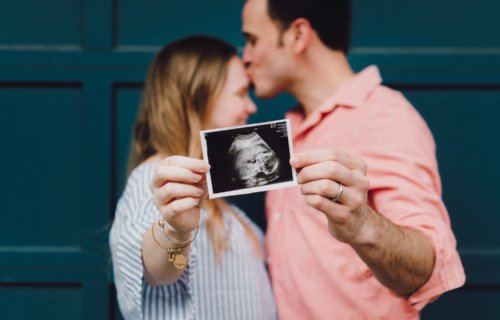CORVALLIS, Ore. — Your zip code can affect who you hang out with, your personality, and even who you end up meeting and marrying. Now, a new study suggests that where you live also affects whether or not you’ll have children. Researchers from Oregon State University found that people in socioeconomically challenged neighborhoods are 20 percent less likely to conceive than people living in middle-class or affluent areas.
The team adds that understanding the relationship between residency and pregnancy could help people currently having trouble getting pregnant or who are infertile.
“The world of fertility research is beginning to examine factors associated with the built environment. There are dozens of studies looking at how your neighborhood environment is associated with adverse birth outcomes, but the pre-conception period is heavily under-studied from a structural standpoint,” says lead author Mary Willis, a postdoctoral scholar in OSU’s College of Public Health and Human Sciences, in a university release. “Turns out, before you’re even conceived, there may be things affecting your health.”
Even if you’re rich, your neighborhood still has an impact
The study looked at “fecundability” — the monthly probability of getting pregnant without fertility treatments. Researchers determined a person’s socioeconomic status in a neighborhood using an “area deprivation index” score. One notable trend that emerged was people in poorer neighborhoods had a harder time getting pregnant than people in higher-income neighborhoods. This pattern remained even when well-off and highly educated study participants lived in poor socioeconomic areas.
“The concept that your neighborhood affects your fertility hasn’t been studied in depth,” Willis says. “In addition, the world of infertility research is largely focused on individual factors, so when I came into this study as an environmental epidemiologist, I was thinking we should look at it as a structural problem.”
In the current study, researchers used ongoing data from a pregnancy study taking place at Boston University. The data included 6,356 individuals between 21 and 45 years-old who were trying to get pregnant without fertility treatments from 2013 to 2019.
Most of these participants were white, had a four-year college degree, and had an annual salary of $50,000 or more. Each person filled out online surveys once every eight weeks for a year which monitored their menstrual cycle and pregnancy status. Out of all the participants, there were 3,725 pregnancies.
When the team took a person’s residence into account, they found that people living in low-income neighborhoods had a 19 to 21-percent lower chance of conceiving a child. Those in the most socioeconomically-deprived neighborhoods saw their chances of conceiving drop by 23 to 25 percent — in comparison to people living in more stable neighborhoods.
“The fact that we’re seeing the same results on the national and state level really shows that neighborhood deprivation can influence reproductive health, including fertility,” explains Willis.
The study is published in JAMA Network Open.

